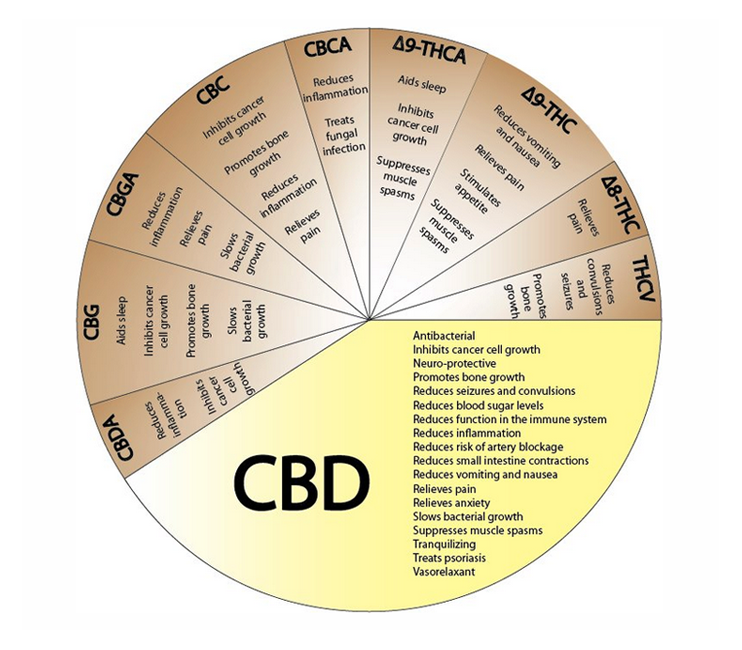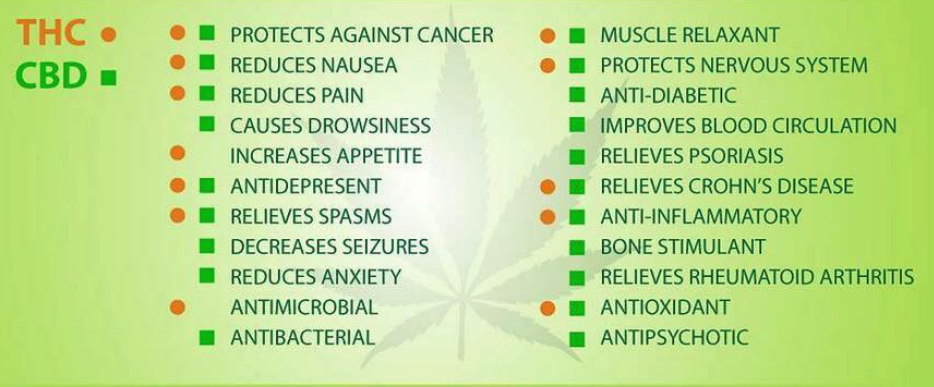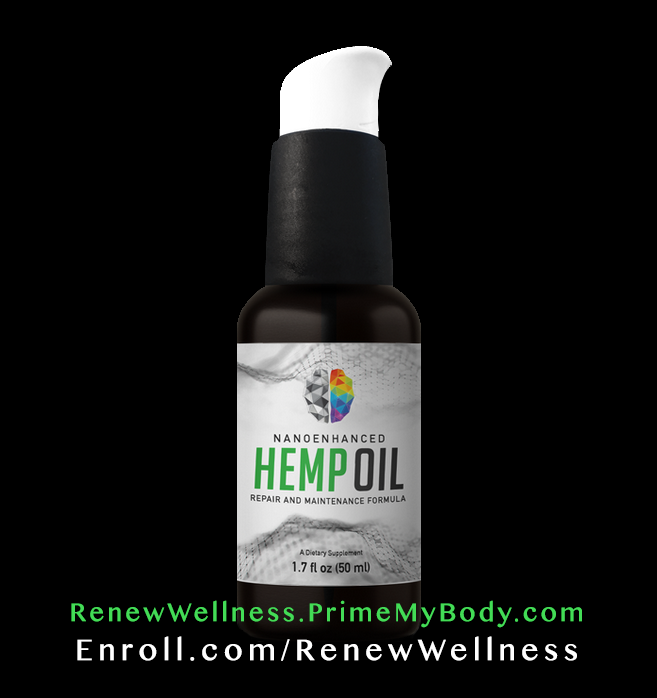With so much misinformation on the internet about CBD hemp oil, one of the most common questions we get from consumers is in regards to the difference between CBD from hemp vs CBD from marijuana.
Many prospective medical marijuana patients are surprised by the number of similarities between hemp and marijuana. However, the resemblance should come as little surprise, since both hemp and marijuana are versions of the Cannabis Sativa L. plant. As we dig deeper into the two plants, we begin to see how they can each play a role in the medical use of cannabis.
One of the misconceptions about CBD hemp oil products is that CBD from hemp oil is less potent than cannabis oil or CBD oil made from medical marijuana. While it is true that the percentage of CBD in hemp plants by dry weight is lower than the percentage of CBD in some specially bred marijuana plants, once the oil is extracted from the plant, this difference becomes negligible.
However, hemp cultivars also grow much faster than marijuana, so while an intensively bred high-CBD medical marijuana strain would take a full season to grow, a hemp farmer can often plant multiple crops a season, creating a more environmentally sustainable and conscious product.
While it has been warned that hemp is a bioaccumulator (absorbs and collects contaminants). It needs to be noted that all cannabis plants, including medical marijuana strains, are bioaccumulators. A medical marijuana crop grown with poisonous pesticides or fertilizers is more dangerous to a consumer than a cleanly grown hemp crop, and with minimal regulations in many medical marijuana markets, there is no guarantee that marijuana bought from dispensaries is healthy to use. Recently in Colorado, there have been a number of recalls for marijuana grown with dangerous, unapproved pesticides.
Some cannabinoid users also get caught up with the idea that CBD hemp oil is made from “industrial hemp”. There is nothing inherently dirty about industrial hemp, and as mentioned above, products made from hemp oil have the potential to be cleaner and purer than medical marijuana products.
On a molecular level, CBD from hemp is the same as CBD from marijuana. Franjo Grotenhermen of the International Association for Cannabinoid Medicines has been quoted saying, “CBD is CBD. The human body does not care where the molecule comes from.” Water makes a good analogy here. As far as your body is concerned, an H2O molecule is the same, whether it comes from a rushing river or out of your kitchen tap. In the same rate,10 mg of CBD from hemp oil is absorbed the same as 10 mg of CBD that you’d find in a medical marijuana dispensary. And just like with river water and tap water, neither hemp or marijuana is guaranteed healthier than the other, and much depends on outside factors, making our independent Triple Lab Testing™ process all the more critical to the safety of our customers.
Finally, the entourage effect, mentioned in Sanjay Gupta’s CNN special Weed, emphasizes the need for a range of cannabinoids and other compounds in cannabis in order to be effective. The fact is that hemp, like marijuana, contains measurable amounts of a number of terpenes and cannabinoids, including CBD and THC. However, the levels of THC in hemp oil are low enough not to be psychoactive, making hemp a legal, more viable alternative for many to high-THC medical marijuana.
Because CBD hemp oil products are legal in all 50 states, they fill an important role for those who can’t access medical marijuana in their state. CBD hemp oil is also an alternative to medical marijuana for those who are interested in using CBD but are looking to avoid the negative effects of psychoactive THC.
With so much contradicting information available online, it is important for consumers to do their own research from trusted sources.
This article may contain certain forward-looking statements and information, as defined within the meaning of Section 27A of the Securities Act of 1933 and Section 21E of the Securities Exchange Act of 1934, and is subject to the Safe Harbor created by those sections. This material contains statements about expected future events and/or financial results that are forward-looking in nature and subject to risks and uncertainties. Such forward-looking statements by definition involve risks, uncertainties.





















